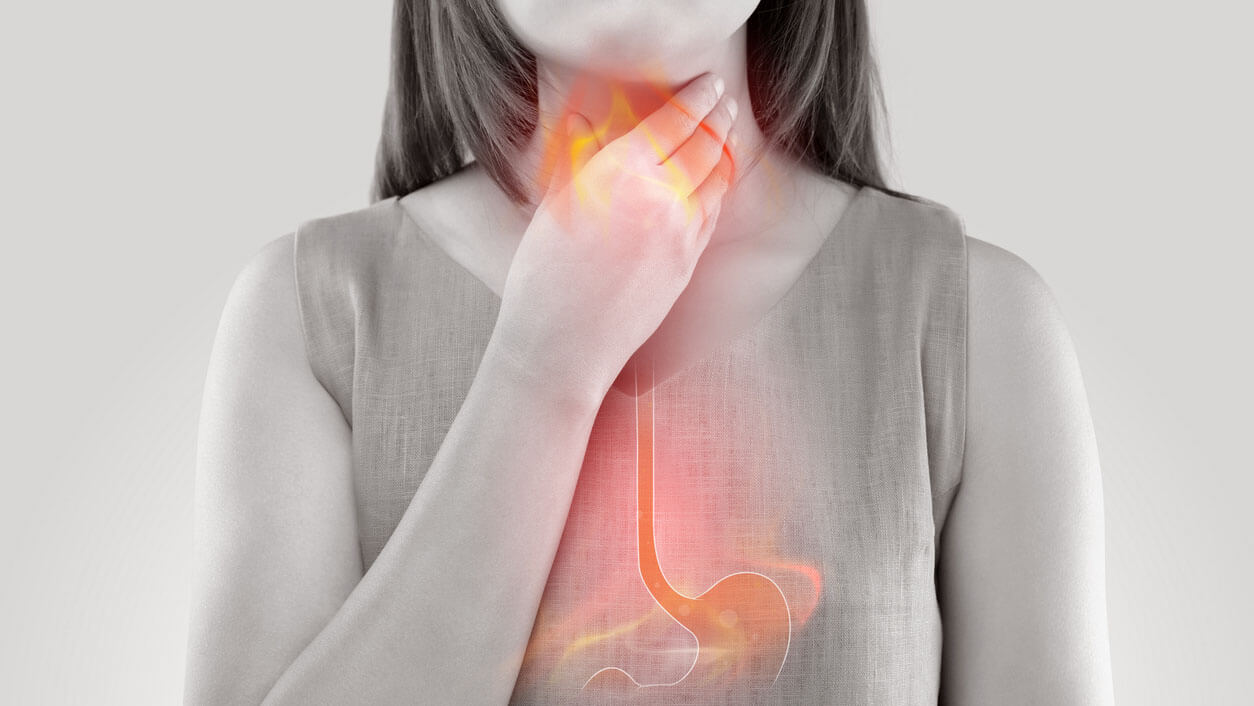Heartburn may be a sign of a serious gastrointestinal concern
November 19, 2024
November is GERD Awareness Month and a time to consider reducing or treating acid reflux symptoms
OCONTO FALLS, Wis. — With 1 out of 5 Americans suffering from Gastroesophageal Reflux Disease (GERD), a serious form of acid reflux which can cause bouts of heartburn or a burning sensation in the chest, GERD Awareness month serves as a good reminder that there are ways to reduce or treat acid reflux symptoms.
GERD is caused by a weak valve that allows acid, bile and stomach contents to flow back from the stomach into the esophagus, creating pain (heartburn) and potentially causing damage to the lining of the esophagus. Heartburn is the most common symptom, but not the only one. Some GERD sufferers experience other symptoms, such as regurgitation, difficulty swallowing, hoarseness, persistent cough, worsening asthma symptoms, bad breath, sleep disturbance and tooth erosion.
Prevea Health has specially trained digestive health physicians and dedicated nurses skilled in surgical and non-surgical options to help reduce GERD symptoms. By consulting with a member of the Prevea Digestive Health team, patients often find relief from GERD symptoms through non-surgical options including prescription and non-prescription medications; reducing meal sizes; avoiding fried, fatty and spicy foods, chocolate, and caffeinated beverages; quitting smoking; losing weight; wearing loose-fitting clothing and avoiding laying down for a few hours following a meal.
When non-surgical methods do not offer relief from GERD symptoms, a Prevea Gastroenterologist, or GI specialist, can also provide advanced procedures to accurately diagnose and treat digestive health concerns. Advanced surgical care options for GERD are available at HSHS St. Vincent Hospital and HSHS St. Mary’s Hospital Medical Center in Green Bay, HSHS St. Nicholas Hospital in Sheboygan, and HSHS St. Clare Memorial Hospital in Oconto Falls.
GERD is a chronic condition and when left untreated it can cause worsening symptoms, lead to inflammation, ulcers and potentially increase the risk of esophageal cancer. For those impacted by GERD, Prevea and HSHS hospitals in Wisconsin have the solutions to help individuals start eating more varied foods once again, sleep more comfortably at night and increase a person’s quality of life.
To schedule an appointment with a Prevea GERD specialist call (920) 496-4700 or visit prevea.com.
###
About Hospital Sisters Health System (HSHS)
Hospital Sisters Health System (HSHS) is a Catholic health care ministry founded in 1875. Dedicated to our Mission to reveal and embody Christ’s healing love for all people through high-quality Franciscan health care, HSHS clinicians provide exceptional care centered on the whole person. Based in Springfield, Illinois, HSHS employs more than 11,000 colleagues who provide care in 13 acute-care, children’s and critical-access hospitals and home health and hospice programs in Central and Southern Illinois and Eastern Wisconsin. HSHS is aligned with more than 1,000 primary and specialty physicians and advanced practitioners through its owned affiliates HSHS Medical Group and Prairie Cardiovascular and its partnership with Prevea Health. For more information about HSHS, visit hshs.org.
About Prevea Health
Prevea Health is a community of passionate and accomplished physicians, caregivers and staff working together to provide exceptional health care. Patients have trusted Prevea with their medical care needs since 1996 when the organization was founded in Green Bay, Wis. Today, Prevea provides primary care and a wide range of specialty medical care in clinic, hospital, and workplace settings across Northeast Wisconsin. It is partnered with Hospital Sisters Health System (HSHS) which operates hospitals in Wisconsin. For more information about Prevea Health, visit www.prevea.com.

Media Contact
Angela Deja
Director, Public Relations and Communications